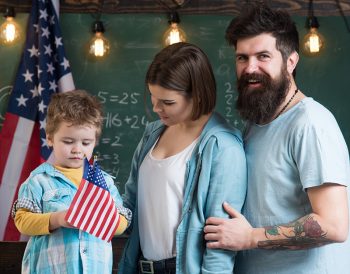Home /
Joining with the Child

– Steven Sellars, LPC/MHSP
Everyone likes to feel wanted, needed and supported. All of us desire to feel connected to someone, individually and with a community. The support and encouragement we receive in these relationships both individually and in a community often make the difference with everything from our daily mood to life decisions. Most of us could recall a person in our life who inspired, challenged us or who we absolutely believed supported us. We might believe that this teacher, family member, pastor, friend, camp counselor, coach or group leader made the difference in our life. They were the one we might say helped us to make the appropriate changes, redirected us, set us on a better course. Who is that person for you?
The Process
In the therapeutic process and especially in the child process this relationship is crucial to the success of the desired outcome. In the world of child therapy joining with the child and developing this relationship is the key to assisting the child with their trauma. Naturally the child doesn’t have the same vocabulary as the adult might in regards to “how do I talk about what happened?” Typically children don’t understand how to express themselves, their thoughts or have the words to express their feelings. This can be a very frustrating experience for anyone and especially the child.
Relationship
What helps a person entertain the idea (and the risk) of being vulnerable? Trust and relationship. When the child feels this sense of being safe, this is ok and I can be me…they will embrace the therapeutic process. For most children this comes through age appropriate play therapy. This age appropriate interaction is akin to sitting in the café sipping on coffee in a warm inviting atmosphere for the adult. It enables a person to embrace the willingness to be more relaxed and open. In other words, take the risk of being vulnerable.
Joining
The word joining simply means to connect, be connected to, or linked with. Another version of this meaning states: to become involved in an activity with another. You might be a parent, an educator or a therapist and this principle is the key to assisting a child. Join with them. You don’t always have to be the lead or the expert. Being a person who is willing to sit on the floor and build something with Legos can create the bridge of interaction that lends to feelings of safety not to mention a bit of fun. While this in itself is a therapeutic intervention it is even more meaningful with the human connection. And if the child believes they are safe and experiencing a non-judgmental presence, they will embrace the process.
Joining in Trauma of the Child
The child who has experienced trauma (as stated before) doesn’t always have the vocabulary or language to express this pain or hurt in words. We observe it more so in behavior expressions which are often deemed inappropriate. Then we focus on and often misunderstand the intention of the behavior. The child’s inappropriate expression, negative attention seeking behavior, problems in school, aggressiveness or withdraw grabs the attention of the caregiver. Joining with the child, creating a safe emotional environment invites openness and a willingness to slow down and an opportunity to formulate this vocabulary. A child naturally is open to play, to art, fun interaction and when they are engaged with this, they can develop conversations on their own regarding difficult things. And the adult, or the therapist gently converses alongside, joined with the child and not appearing as probing for information.
The Traumatized Child
(imagine this) The child who has dealt with, experienced traumatic and/or very stressful life circumstances can be pictured carrying several backpacks, boxes, luggage they have to carry all at once. Each article carries its own difficult memories, nightmares, fears, worries, anxiety, pressure and stress. They cannot put them down due to the inability to process the difficult information. They carry this load to school, to class, to church, clubs, at home and everywhere they go. The expectation they tend to feel and the pressure added is for them to perform academically, socially and follow the rules of life. This is difficult for any person to do, to carry the weight of the trauma and stress while being told to fit in, follow life direction, perform well. This child tends to feel insecure, unattached, worried or unsafe.
Finally
While all of this might sound a little overwhelming especially if you are the caregiver trying to figure it out for your child. You may feel like there isn’t enough time in your day. This is completely understandable. This idea of joining can be very simple. It just might be literal brief moments spent in soft, caring and open activity, putting the value of the moment on the child. It is carving out brief moments with the child, one on one, listening to their wild stories about their interests. It is sitting on the floor with a puzzle, drawing a spaceship, or playing a game. While we might struggle with time, they struggle with the need for connection and emotional safety. Play allows space to join the child, create safety and possible dialogue.
Here at the Steven A Cohen Military Family Clinic our incredible and highly trained staff who work with children have individual and specialized talents to utilize play therapy and many other interventions tailored to meet the needs of the child. We develop this secure relationship by joining with the child and also with you. We happily consult and collaborate with the parent during this process. Allow us to briefly join this journey with you and assist your child and also the family system.


